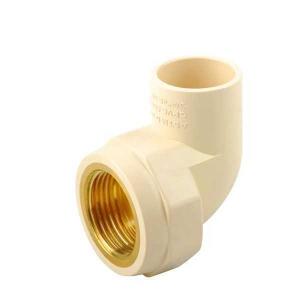Plastic water pipes and fittings are a popular choice for many homeowners and plumbers alike due to their versatility, durability, and ease of installation. In this article, we will explore the world of plastic plumbing sets, diving into their benefits, types, and how to choose the right one for your home.
The Appeal of Plastic Plumbing Sets
Plastic pipes have come a long way since their introduction to the plumbing industry. They are no longer just a cheaper alternative to traditional metal pipes. Modern plastic pipes offer a range of advantages that make them a top choice for both residential and commercial plumbing projects.
1. Cost-Effectiveness
One of the most significant benefits of plastic water pipes is their cost-effectiveness. They are generally less expensive than metal pipes, which can save homeowners a considerable amount on their plumbing bills. Additionally, the lower cost of materials can also reduce labor costs, as plumbers can work more quickly with lighter-weight materials.
2. Corrosion Resistance
Plastic pipes are naturally resistant to corrosion, which means they won’t rust or degrade over time like metal pipes can. This resistance to corrosion not only extends the life of the pipes but also ensures that the water quality remains high, as there is no risk of contaminants leaching into the water supply.
3. Lightweight and Easy to Handle
The lightweight nature of plastic pipes makes them much easier to handle and install compared to their metal counterparts. This ease of installation can save time and labor costs during plumbing projects, making them an attractive option for DIY enthusiasts and professionals alike.
4. Flexibility
Plastic pipes are more flexible than metal pipes, which allows for easier routing around obstacles and through tight spaces. This flexibility can be particularly beneficial in older homes where the plumbing may not have been designed with modern conveniences in mind.
5. Insulation Properties
Plastic pipes have better insulation properties than metal pipes, which can help reduce heat loss in hot water systems. This can lead to energy savings and a more efficient plumbing system overall.
Choosing the Right Plastic Plumbing Set
With so many options available on the market, choosing the right plastic plumbing set can be a daunting task. Here are some factors to consider when selecting the perfect set for your needs:
1. Material Type
There are several types of plastic materials used in the manufacture of water pipes, including PVC, PEX, and CPVC. Each material has its own set of properties and is suited to different applications. For example, PEX is known for its flexibility and is often used for radiant heating systems, while CPVC is more resistant to heat and is suitable for hot water applications.
2. Pipe Diameter
The diameter of the pipes is another important consideration. Different diameters are better suited to different water flow rates and pressures. It’s essential to choose the right diameter for your specific needs to ensure optimal performance.
3. Fittings Compatibility
Ensure that the fittings included in your plumbing set are compatible with the pipes you plan to use. Incompatible fittings can lead to leaks and other plumbing issues down the line.
4. Quality and Durability
Look for high-quality, durable materials that are designed to last. Investing in a high-quality set now can save you from having to replace your pipes and fittings in the future.
5. Ease of Installation
Some plastic plumbing sets are designed with ease of installation in mind, featuring push-fit or other quick-connect systems. These can save you time and effort during installation.
Installing Your Plastic Plumbing Set
Once you’ve chosen the right set, it’s time to think about installation. Here are some tips to help you get the job done right:
1. Plan Your Layout
Before you start cutting and connecting pipes, plan out your layout. This will help you determine the best route for your pipes and ensure that you have all the necessary fittings and materials on hand.
2. Use the Right Tools
Having the right tools for the job is crucial when it comes to installing plastic pipes. This includes pipe cutters, measuring tapes, and the appropriate fittings for your chosen material.
3. Follow Manufacturer’s Instructions
Each type of plastic pipe and fitting will have specific installation instructions. Be sure to follow these guidelines to ensure a secure and leak-free connection.
4. Test Your System
After installation, it’s essential to test your plumbing system to ensure there are no leaks. This can be done by pressurizing the system and checking for any signs of leakage.
5. Maintenance and Care
Proper maintenance and care of your plastic plumbing set will help extend its lifespan. This includes regular inspections for signs of wear and tear and addressing any issues as soon as they arise.
The Future of Plastic Plumbing
As technology advances, so too does the world of plumbing. New materials and innovations are constantly being developed to improve the performance and efficiency of plastic plumbing systems. From self-healing pipes that can repair minor cracks to smart plumbing systems that can detect leaks before they become major issues, the future looks bright for plastic plumbing.
In conclusion, plastic water pipes and fittings offer a range of benefits that make them an attractive option for many plumbing projects. Whether you’re a homeowner looking to save on costs or a professional seeking a reliable and efficient solution, a complete plumbing set made from high-quality plastic materials is a wise investment. By considering factors such as material type, pipe diameter, and fittings compatibility, you can select the perfect set for your needs and enjoy the benefits of a modern, efficient plumbing system.

